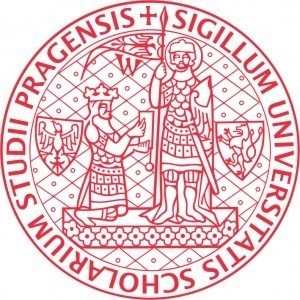Photos of university / #universityofutah
The Bachelor of Arts in Political Science at The University of Utah offers students a comprehensive and rigorous education in understanding the fundamental principles, theories, and institutions that shape political systems and government operations both in the United States and around the world. This program is designed to develop critical thinking, analytical skills, and a nuanced understanding of political processes, public policies, and international relations. Students will explore a wide range of topics including American politics, comparative politics, international relations, political theory, and public administration. The curriculum provides a balanced mix of foundational coursework and specialized electives, allowing students to tailor their educational experience to their interests and career goals. In addition to coursework, students are encouraged to engage in internships, research projects, and study abroad programs to gain practical experience and a global perspective. The program emphasizes the importance of quantitative and qualitative research methods, preparing graduates for careers in government, law, journalism, public policy, international organizations, or further graduate study. Faculty advisors and academic support services are available to help students plan their academic paths and develop skills necessary for professional success. Graduates of the program are equipped to analyze complex political issues, understand the impact of political decisions on society, and contribute meaningfully to civic life. Whether students aspire to pursue careers in public service, diplomacy, political consulting, or academia, the Political Science program at The University of Utah provides a solid foundation to succeed and make a difference in the world.
- Must complete the degree within two calendar years after admission to the program.
- Complete a minimum of 30 credit hours of approved graduate course work.
- Successful completion of a master’s thesis or master’s essay and final oral defense of the thesis or essay.
- Maintain a minimum cumulative GPA of 3.0.
Core Courses
(Complete 2 courses)
- POLS 6001 - Quantitative Analysis in Political Science 3 Credit(s)
- POLS 6003 - Approaches to the Study of Politics 3 Credit(s)
Major and Minor Field Requirements
(Courses are offered in five fields listed below. Students must designate one of these fields as a major field and a second as a minor field)
American Politics
Major Field
(Complete 2 out of the 3 courses and one 6000-level American Politics course)
- POLS 6281 - American Political Institutions 3 Credit(s)
- POLS 6282 - American Political Behavior 3 Credit(s)
- POLS 6283 - American Policy Processes 3 Credit(s)
-
and
- One 6000-level American Politics Course
Minor Field
(Complete 1 of the 3 courses and one 6000-level American Politics course)
- POLS 6281 - American Political Institutions 3 Credit(s)
- POLS 6282 - American Political Behavior 3 Credit(s)
- POLS 6283 - American Policy Processes 3 Credit(s)
-
and
- One 6000-level American Politics Course
Comparative Politics
Major Field
(Complete 3 courses)
- POLS 6400 - Proseminar: Comparative Politics 3 Credit(s)
- POLS 6405 - Comparative Public Policy 3 Credit(s) ORPOLS 6740 - Political Change 3 Credit(s)
- One 6000-level Comparative Politics course
Minor Field
(Complete 2 courses)
- POLS 6400 - Proseminar: Comparative Politics 3 Credit(s)
- POLS 6405 - Comparative Public Policy 3 Credit(s) ORPOLS 6740 - Political Change 3 Credit(s)
International Relations
Major Field
(Complete 3 courses)
- POLS 6850 - Field Seminar in International Relations 3 Credit(s)
- POLS 6690 - Foundations of International Security 3 Credit(s) OR POLS 6630 - Foundations of International Organization 3 Credit(s) OR POLS 6710 - Introduction to International Political Economy 3 Credit(s)
- One 6000-level International Relations course
Minor Field
(Complete 2 courses)
- POLS 6850 - Field Seminar in International Relations 3 Credit(s)
- POLS 6630 - Foundations of International Organization 3 Credit(s) OR POLS 6690 - Foundations of International Security 3 Credit(s) OR POLS 6710 - Introduction to International Political Economy 3 Credit(s)
Political Theory
Major Field
(Complete 3 courses)
- POLS 6000 - Foundations of Political Thought: Ancient and Judeo-Christian 3 Credit(s)
- POLS 6010 - Modern Political Theory 3 Credit(s)
- ONE of the following: POLS 6008, POLS 6015 , POLS 6020, POLS 6025 , POLS 6030 , POLS 6035 , POLS 6045, POLS 6140
Minor Field
(Complete 2 courses)
- POLS 6000 - Foundations of Political Thought: Ancient and Judeo-Christian 3 Credit(s)
- POLS 6010 - Modern Political Theory 3 Credit(s)
Public Administration
Major Field
(Complete 3 courses)
- PADMN 6050 - Proseminar: Survey of Public Administration 3 Credit(s)
- PADMN 6300 - Administrative Theory 3 Credit(s)
- ONE of the following: PADMN 6230 , POLS 6320 , POLS 6330, POLS 6340 , POLS 6360, POLS 6380, POLS 6870
Minor Field
(Complete 2 courses)
- POLS 6300 - Administrative Theory 3 Credit(s)
- ONE of the following: POLS 6230, POLS 6320 , POLS 6330, POLS 6340 , POLS 6360, POLS 6380, POLS 6870
Oral Defense
Graduate School policy requires that all Master’s candidates pass a final oral examination conducted by their supervisory committee. This exam covers only the essay or thesis topic and not unrelated course work. The completed essay or thesis should be given to all committee members well in advance of the date of the oral defense. Graduate School policy specifies that students should submit acceptable drafts to the committee chair at least three weeks in advance, and to the other committee members at least two weeks in advance of the oral defense date. If the defense is successful, the committee chair files the “Report of the Final Oral Examination” with the Graduate Program Coordinator. Students should expect to make additional revisions to their papers after the oral defense in order to put the paper into final approved form.
Students must be registered for at least three credit hours during the semester in which they defend, even if they defend during the summer. POLS 6980, Faculty Consultation, should be used for this purpose if no further courses or thesis credits are needed. Students do not need to be registered after a successful oral defense, even if minor revisions to the essay or thesis are necessary
- Bachelor’s degree from accredited college of university.
- Minimum cumulative undergraduate GPA of 3.2.
- Graduate Record Examination (GRE) score.
- A 500-word Letter of Intent, including areas of interest.
- Three letters of recommendation.
- Academic writing sample.
- Professional resume or curriculum vitae.
- 6.5 on the IELTS
- 80 on the TOEFL iBT
- 550 on the TOEFL pBT (paper-based)
The University of Utah offers Financial Aid and scholarship opportunities to support students enrolled in the Political Science program. Undergraduate students can apply for federal and state financial aid programs, including Pell Grants, Utah State grants, and federal work-study options. Additionally, departmental scholarships are available for Political Science majors based on academic achievement, financial need, and leadership qualities. Graduate students pursuing advanced degrees in Political Science may be eligible for assistantships, fellowships, and research grants provided by the university or external organizations. The university's Office of Scholarships and Financial Aid provides comprehensive guidance on the application procedures, eligibility criteria, and deadlines. Students are encouraged to complete the Free Application for Federal Student Aid (FAFSA) annually to determine their eligibility for federal aid programs. The university also promotes private scholarships from various foundations and organizations supporting political science students. Loan options, including federal subsidized and unsubsidized loans, are accessible for eligible students to cover remaining educational costs after applying scholarships and grants. Financial planning resources, including workshops and counseling services, are available to help students manage their educational expenses effectively. The university is committed to providing equitable access to education through its diverse financing options tailored to meet the needs of its students. For international students, there are limited financial assistance opportunities; however, some scholarships and private funding sources are accessible. Overall, the University of Utah endeavors to make political science education affordable through a combination of federal, state, institutional, and private funding sources, ensuring that students can succeed academically without undue financial burden.
The Bachelor of Arts in Political Science at the University of Utah offers students a comprehensive understanding of political systems, government structures, political theories, and international relations. Designed to prepare students for careers in government, public policy, law, journalism, international organizations, and non-profit sectors, the program emphasizes critical thinking, analytical skills, and a broad understanding of political processes at local, national, and global levels. Students develop core competencies through coursework in American politics, comparative politics, international relations, political theory, and research methods, enabling them to analyze complex political issues, evaluate policies, and contribute meaningfully to public discourse. The program encourages experiential learning through internships, study abroad opportunities, and participation in political organizations to provide practical insights into the functioning of political institutions and processes. Students can tailor their degree with various electives aligned with their interests, such as environmental policy, human rights, or political economy, fostering specialized knowledge alongside foundational skills. Faculty members are active researchers who often involve students in their projects, promoting engagement with current political debates and scholarly analysis. The program also offers opportunities for undergraduate research and honors options for high-achieving students. Graduates of the Political Science program at the University of Utah have pursued diverse careers in government agencies, international bodies, law firms, journalism, consulting, and further academic study. The department is committed to preparing students for active civic engagement and informed understanding of political dynamics shaping society worldwide.









